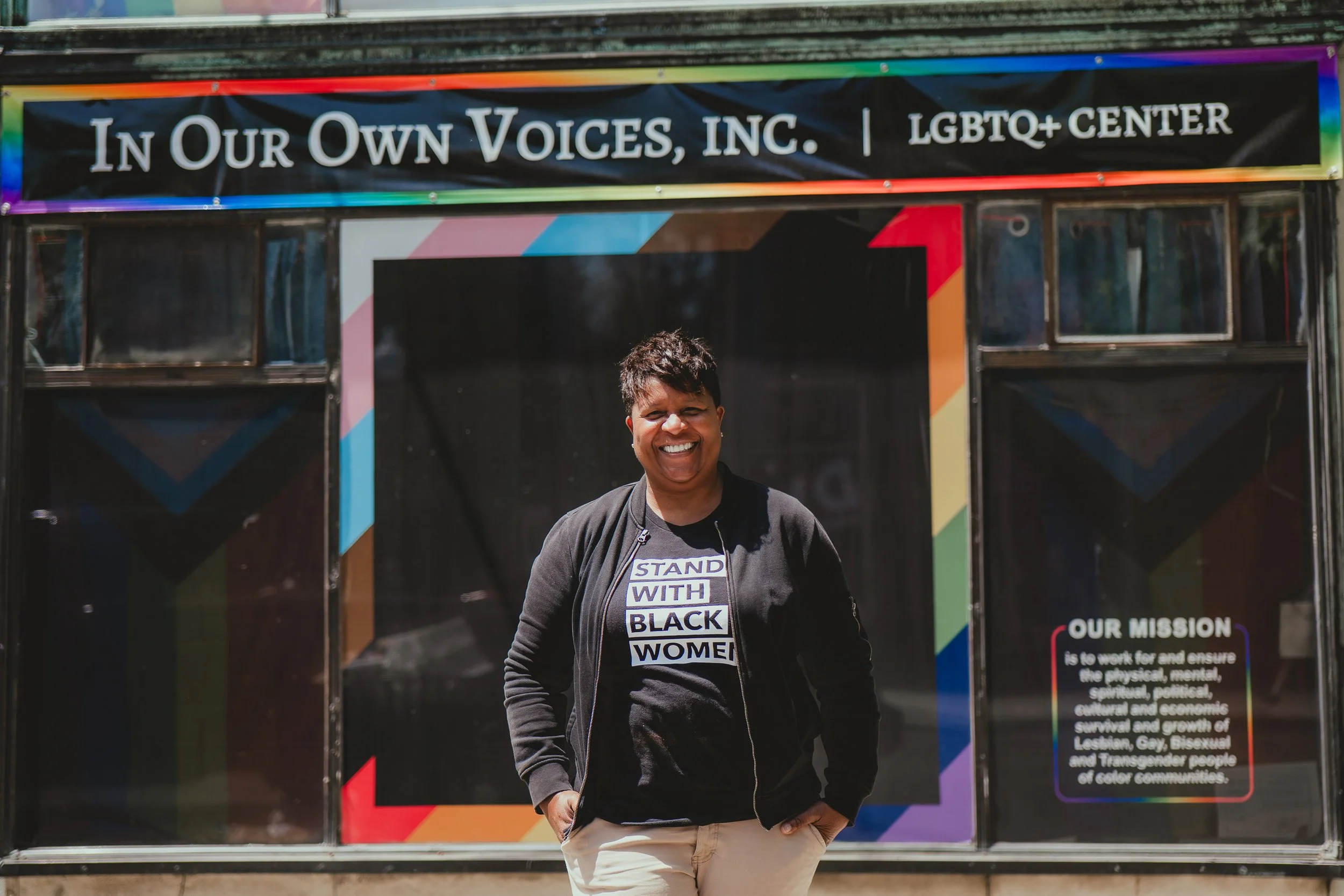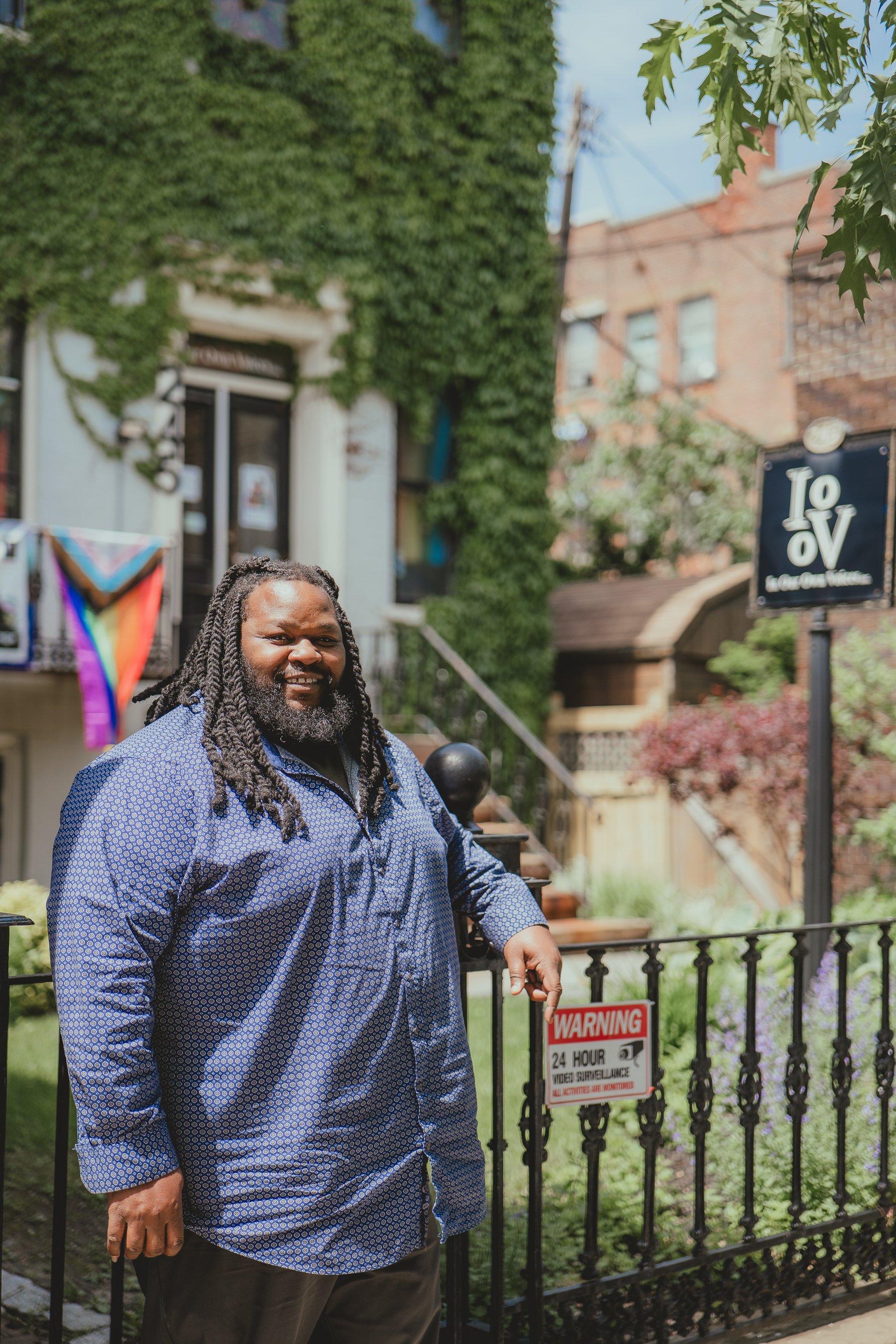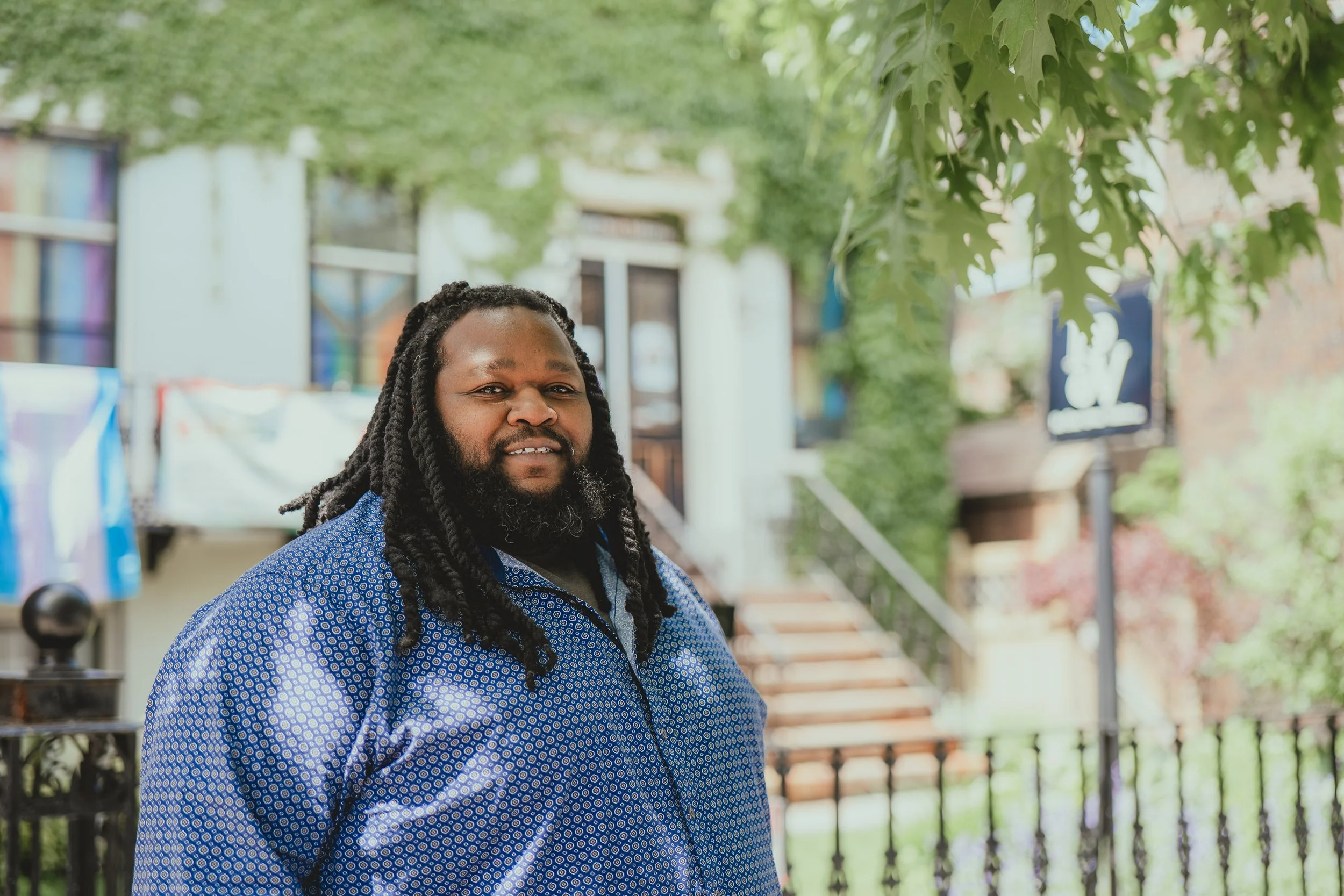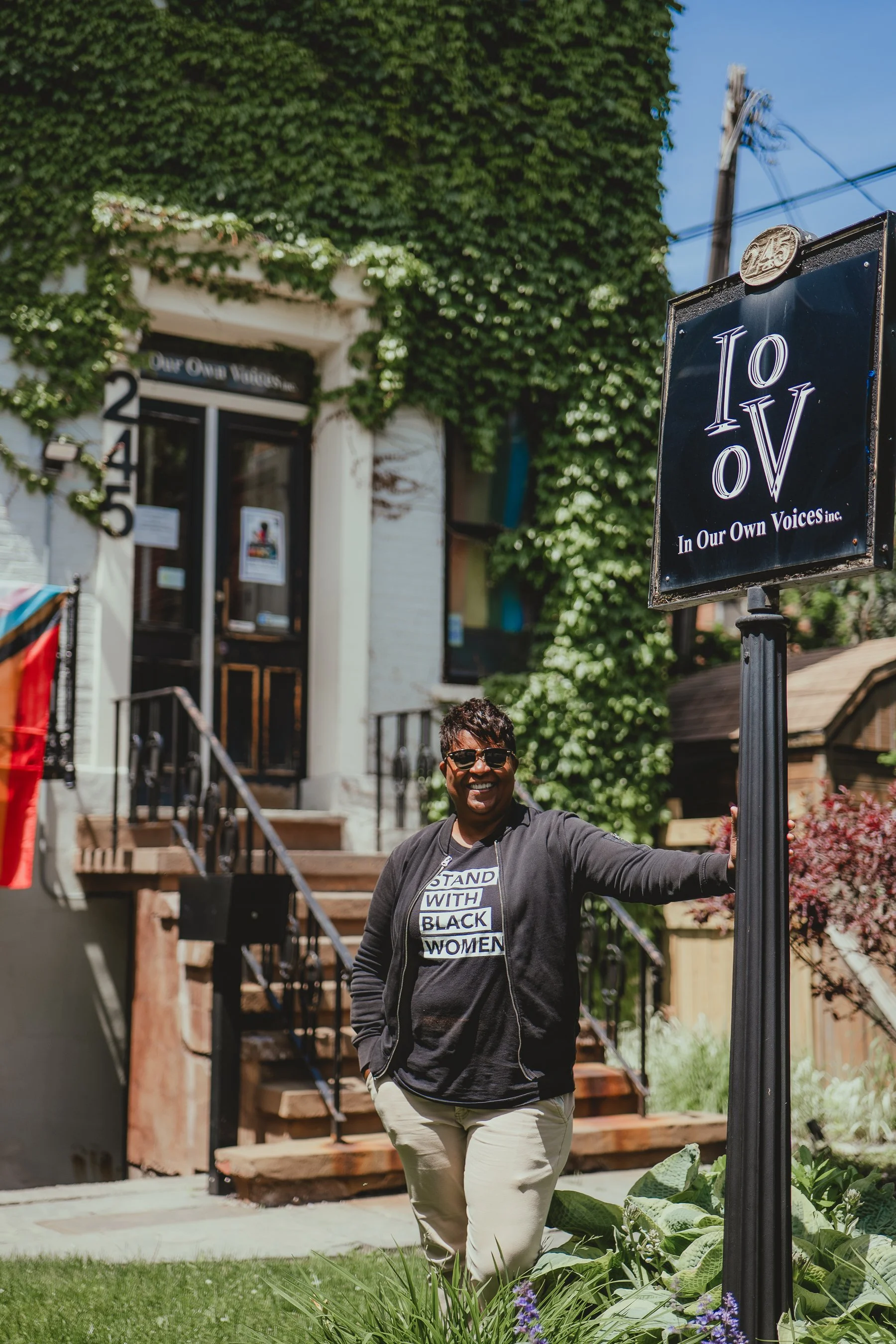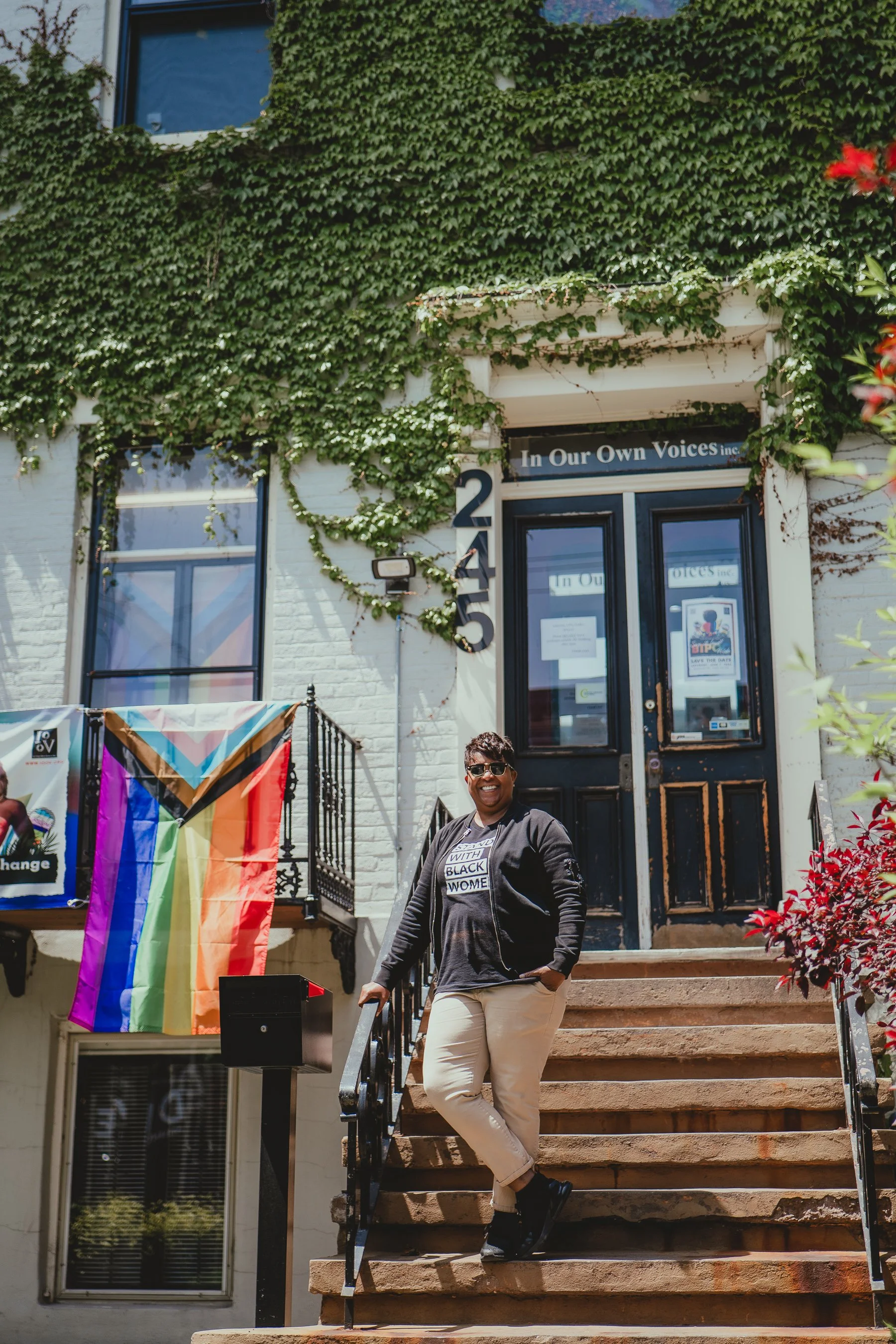NONPROFIT SPOTLIGHT: In Our Own Voices
Photo by Debi Gustafson
“…our needs weren't always given that same level of importance or attention or we weren't even invited to the table…[so] we’re going to build our own table.”
“We can't silo our identities. I can't walk out the door and say, ‘Today I'm going to be black, tomorrow I'm going to be gay.’ It doesn't work that way,” laughs Phillip Burse, the Chief Operating Officer of local nonprofit In Our Own Voices (IOOV). “We all have multiple components that make us who we are and we weren't seeing ourselves represented at the intersections of our identities. When it came to issues that were supposed to be elevated for legislative measures or for cultural considerations, our needs weren't always given that same level of importance or attention or we weren't even invited to the table.”
Founded in 1998 out of three separate groups—Feminist Action Network (FAN), Sisters and Brothers in the Life (SABL), and Gay Men of Color Alliance (GMoCA)—In Our Own Voices is a nonprofit organization that seeks to go beyond fighting for a seat at the table that would represent intersectional identities. Instead, as Phillip says, if those in power won’t bring them to the table, “we’re going to build our own table.” In building that table, the organization has created an impressively thorough three-pronged approach: Direct services, training and technical assistance, and systems level advocacy.
As Phillip explains it, the work they do is deeply multifaceted and rooted in providing members of the community help with needs that too often go unmet or even unspoken. For direct services, this can include a number of vital offerings like working directly with their community through counseling services, mental health, emergency assistance, food pantry, free and confidential HIV and hepatitis C testing, and general advocacy. Additionally, they often help navigate the criminal justice system, the Health and Human Service system, and many other social service systems. And, for the record, IOOV offers this aid to anyone who needs it.
“There's enough resources to go around, and I would rather have more access than less. We do have unique challenges and barriers—societally, healthwise, etc.—that we need our own safe space to manage,” he acknowledges, but “we don't turn anyone away. About a quarter of the folks that we serve annually don't identify as LGBTQ+ or as a person of color. We're very inclusive because we recognize that our relationships are inter- and multiracial. Our families are multi- and interracial, our children, our allies, so we are not an exclusionary organization.”
BIPOC Pride is, of course, a timely example of inclusion that centers around the needs of LGBTQ+ BIPOC folks. Occurring at Washington Park in Albany on Saturday June 7th, BIPOC Pride is for allies and the LGBTQ+ community alike, though its initial founding as a health intervention explains how it centers the BIPOC LGBTQ+ experience.
“We got partial funding from the Department of Health to connect our communities with resources. Because [both BIPOC and LGBTQ+ folks are] medically underserved, we are less likely to go and seek certain safety and support mechanisms because of fear of discrimination and actual experiences of discrimination, bias, etc.,” Phillip notes. The current iteration of the event is both celebratory and functional, as they will be looking at their contributions to the larger LGBTQ+ community, while also linking their communities to various health and wellness screenings, domestic violence agencies, religious institutions, and even organizations for economic empowerment.
With inviting allies to join in on the metaphorical table they’ve built, the second and third prongs of IOOV are illustrated: training and technical assistance and systems level advocacy. Whether they are visible or not, members of the BIPOC LGBTQ+ community exist in all sectors, making it all the more integral to IOOV to help every sector become safe and inclusive for them. Phillip elaborates on this second prong, noting that, “As we help and assist our communities in navigating through these systems, we also make sure that those systems are trained and equipped to work with our communities. So we do provide training to law enforcement, court personnel, health and human services, agencies and organizations, colleges, universities, middle schools and high schools—all the different areas that our communities exist in.”
From mailing out resource guides to working with LGBTQ+ BIPOC communities and survivors of domestic and sexual violence to training correctional officers in the deep South of Mississippi, the trainings are about centering those voices and ensuring that they are not only heard, but acted upon. And if you think we aren’t in need of those trainings in Upstate New York? Recall that each one of us exists in both the light and shadow of our history—the recent, the distant, and the in-between.
When discussing how we often hear people questioning a focus on history, especially historical injustices, Phillip remarks, “Yesterday is history. We're still going to talk about what happened. History is not as far away as you think it is. I'm 44 and when my parents were born, Black people still couldn't vote in this country. The people who were engaging in these behaviors are still around…engaging in these behaviors.
“We have to remember that a lot of the issues we talk about—slavery, segregation, women not having equal rights and equal access, LGBTQ+ community members having to register as sex offenders or be arrested or put in conversion camps or mental health asylums because of their identity—all of those things were legal. They were sanctioned and enforced by police, by criminal justice systems, by the folks that were in medical systems. So when we see a mistrust or a distrust [of these institutions], it's rooted in history.” And that final prong, that advocacy work, is about shifting the laws and codes of these institutions towards a place that protects and values their voices.
Finally, Phillip and I discussed how allies could be of service to members of the BIPOC LGBTQ+ community on the daily. It can be challenging not to feel overwhelmed by the multitude of ways to get involved, especially when some causes may feel out of your comfort zone. However, Phillip notes that there is a place for everyone to feel confident and comfortable in advocacy and allyship. Awareness, education, and finding your role in the movement is the place to start.
“Not everybody is made for the streets,” he says simply. “Not everybody is made to protest and go into the Capitol all the time…so find out, what is your role in creating change, creating equity, creating a better society? That could be starting at home with conversations you have with family, challenging and checking them, doing your research. Have intentional conversations with people to get their perspective and why they might feel that way.
“And ask yourself, what am I going to do with this privilege that I have? Am I going to use it to continue to hold people down and oppress them and maintain my social positioning and power? Or am I going to use it to bring people in who are not at the table?”
Reader, you know what the right answer is. Help build the damn table.
To learn more and check out the work done and services provided by In Our Own Voices, visit their website at ioov.org
Photos by Debi Gustafson

